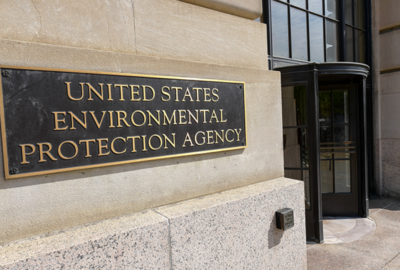EPA finalizes union contract, but AFGE wary of telework’s future
By late June, the EPA contract will become official for the next four years. But AFGE leaders are already planning for more negotiations in the short term.
After negotiating for more than two years, the Environmental Protection Agency has finally ironed out a new collective bargaining agreement with its union, the American Federation of Government Employees.
AFGE Council 238, which represents over 8,000 EPA employees, unanimously ratified the new contract on May 16. The agreement is now in a final review process with agency leaders. By late June, the changes in the contract will become official for the next four years, replacing an interim labor-management agreement.
The contract locks in a couple new articles for bargaining unit employees, one related to diversity, equity, inclusion and accessibility (DEIA), and another on scientific integrity. Although the contract is a positive milestone for the labor-management relationship, AFGE said it’s still wary of what the future holds for the agency’s telework policy.
For the time being, the new collective bargaining agreement secures EPA’s current policies on remote work, telework and flexible work schedules. It was one of the earliest articles AFGE and EPA negotiated for the contract. Currently, telework-eligible bargaining unit employees have to work in the office two days per pay period at a minimum.
But Marie Owens Powell, president of AFGE Council 238, said AFGE is already thinking ahead to the possibility of a “mid-term reopening” of the contract in two years. At that time, agency and union officials will have the opportunity to renegotiate some of the agreement’s provisions.
“The agency has made it clear they intend to open remote work and telework, so the fight is far from over,” Powell said in an interview. “We continue to remain open to discussing with the agency the successes of remote work and telework, but what we’re not willing to do is enter into negotiations right now that are not required. That seems to be what the agency would like to do, [but] the midterm negotiations are not required for two years. We will wait until then.”
An EPA spokesperson said the agency is exploring potential changes to its telework and remote policies to achieve the administration’s current goal to increase meaningful in-person work, while still abiding by all collective bargaining agreements.
In the meantime, Powell said AFGE will focus on firming up its position on telework at EPA, and figuring out how it plans to defend the current, relatively flexible policies in place at the agency.
Overall, both EPA and AFGE view the new collective bargaining agreement largely as a success — especially after many long, tense months of negotiations, and after running into several sticking points. The new agreement, among many standard collective bargaining provisions, adds a handful of new articles for the agency.
EPA Press Secretary Remmington Belford said EPA is “pleased” about arriving at the new collective bargaining agreement, particularly for the articles relating to scientific integrity and DEIA.
“These articles clarify EPA’s commitment to a culture of scientific integrity and affirm the importance of integrating DEIA principles across the agency,” Belford said in an email statement.
EPA to launch DEIA pilot to assess hiring practices
Adding a DEIA article to the union contract is new for EPA, and relatively unique for a federal collective bargaining agreement. AFGE’s initial proposal in June 2022 to add the article led to many back-and-forth discussions between agency and union officials. AFGE proposed multiple DEIA initiatives, like installing gender-neutral bathrooms, implementing DEIA training for EPA employees, diversifying hiring panels and much more.
During negotiations, after being unable to initially reach an agreement, EPA and AFGE considered moving a handful of articles to an impasse, including the provision on DEIA. In August 2023, in reaction to the possibility of an impasse, House lawmakers called on both EPA and AFGE to negotiate in good faith, specifically on the DEIA article.
Ultimately, EPA and AFGE used a third-party mediator to reach an agreement on the provision. The final contract article includes DEIA training for employees, as well as plans to launch several pilot projects to assess the presence of implicit bias in the agency’s hiring and promotion processes.
“We’re really excited that we actually have action items, and we’re excited just to have this article for the first time,” Powell said. “The agency is committing to equal and fair treatment of all employees, and no tolerance for any harassment.”
Even seemingly small items in the DEIA contract article, like installing gender-neutral bathrooms, can make a significant difference in advancing DEIA in the workplace. Even so, Powell said those changes may come slowly, and be somewhat limited.
“We do have to realize that there are a lot of big, historic buildings that our folks are occupying. To do any type of new construction in those buildings is next to impossible — we get that,” Powell said. “So, only where space allows, the agency agreed to provide for gender-neutral bathrooms. Even where there weren’t commitments that we could get in the actual article, we are seeing things change. We put the spotlight on it. And I think that in and of itself has been successful.”
Whistleblower protections for employees
In addition to the DEIA article, another new contract provision mirrors EPA’s scientific integrity policy, aiming to firm up a workplace culture that promotes strong scientific and ethical standards.
In any cases where employees suspect a violation of EPA’s integrity policy, the collective bargaining agreement confirms whistleblower protections for any employee who reports an allegation of scientific misconduct at work.
“Because it’s a contract article, if the agency doesn’t act on it, [that would] kick us into our grievance procedure,” Powell said. “And once you go through step one, step two [of the grievance procedure], the final step is an independent arbitrator. So, in those most serious, grave situations, we’re going to have a third party be able to step in and weigh in on the allegations.”
Powell said adding the new “scientific integrity” provision in the contract is specifically important for EPA. Part of the reason AFGE wanted to include that article in the new collective bargaining agreement was to hedge against a future possibility of what she said were previous agency setbacks during the Trump administration.
“This was the opportunity to provide that layer of protection for our staff,” Powell said. “It’s not just the scientists, it’s anyone who is using that data for decision-making. It could be your engineer; it could be your inspector who happens to be an environmental protection specialist. Everyone enjoys the protection under that article.”
After first agreeing to restore collective bargaining, office space and official time back in 2021, AFGE and EPA worked for years to reach the now final, four-year contract. If there is mutual agreement between the two parties, the contract can then continually be extended in one year increments after the initial four years.
Both parties, each in their own way, described the new agreement as a success for the agency’s workforce. For Powell, the tensions during negotiations and the long hours of work to reach the agreement were well worth it.
“If that means we get one more gender-neutral bathroom, or if we get one more employee who feels safe coming to the workplace expressing their gender the way they choose, then that’s a win for us,” Powell said. “[Agency leaders are] not only getting the pressure from the union — they’re hearing it from their own, from within. And I think we’re going to see tremendous change.”
Copyright © 2025 Federal News Network. All rights reserved. This website is not intended for users located within the European Economic Area.
Drew Friedman is a workforce, pay and benefits reporter for Federal News Network.
Follow @dfriedmanWFED






